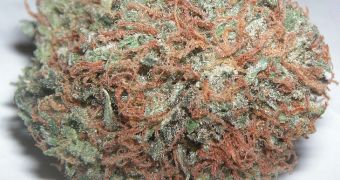Many war veterans returning home to the United States from theaters of operations around the world suffer from shell shock, a condition now known as post-traumatic stress disorder (PTSD). A large percentage of these individuals use marijuana as a means of alleviating their symptoms, but scientists are not yet sure as to whether or not pot actually helps in this instance.
What is clear at this point is that marijuana plays a role in affecting the neural circuits associated with underlying PTSD. The exact nature of the influence has not yet been gage with great precision. The main active ingredient in this plant is a substance called tetrahydrocannabinaol (THC).
It is part of the same class of chemicals as endocannabinoids, substances that are naturally produced in the human body, and which play a role in pain suppression, mood, memory and appetite. THC itself has been proven to act on neural pathways involved in modulating fear and anxiety, both of which are core PTSD symptoms.
US National Institute on Alcohol Abuse and Alcoholism (NIAAA) researcher Andrew Holmes says that these effects were established in studies conducted on lab animals. However, he cautions that marijuana may have some significant side-effects as a potential treatment for this disorder as well.
The effects of pot on the PTSD brain have never been fully studied, in the United States or elsewhere. There is a lack of reliable scientific data on how THC affects the human brain when this syndrome is present, which is why authorities have resisted calls from veterans to allow them access to the medical version of the drug.
One issue with using THC as PTSD treatment is that the brain cells involved in coding feat – on which the chemical acts to reduce anxiety and fear responses – appear to become less sensitive to its effects the more they are exposed. This means that using pot may only work in the short-term.
In other words, after a few months or so, no amount of pot will be able to lessen the symptoms of PTSD, which means that veterans will have to turn to other types of medication for treatment. During this short period of relief, patients will also get side-effects such as short-term memory loss, increased appetite and impaired motor skills, NPR reports.
Holmes says that recent investigations have revealed that THC works best when administered in combination with other therapies, in order to produce “long-lasting reductions in anxiety, very similar to what we were seeing in our animal models.”

 14 DAY TRIAL //
14 DAY TRIAL //